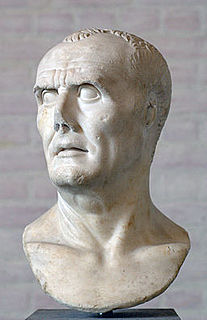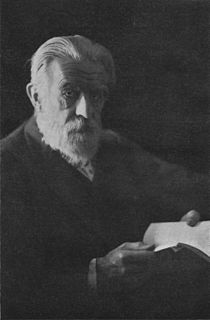Related Research Articles

Pergamon or Pergamum, also referred to by its modern Greek form Pergamos, was a rich and powerful ancient Greek city in Mysia. It is located 26 kilometres (16 mi) from the modern coastline of the Aegean Sea on a promontory on the north side of the river Caicus and northwest of the modern city of Bergama, Turkey.

The Realencyclopädie der classischen Altertumswissenschaft, commonly called the Pauly–Wissowa or simply RE, or PW, is a German encyclopedia of classical scholarship. With its supplements it comprises over eighty volumes.

Karl Wilhelm FriedrichSchlegel was a German poet, literary critic, philosopher, philologist and Indologist. With his older brother, August Wilhelm Schlegel, he was one of the main figures of Jena Romanticism.

Lucius Cornelius Scipio Asiaticus, simply known as Scipio Asiaticus, was a general and statesman of the Roman Republic. He was the son of Publius Cornelius Scipio and the younger brother of Publius Cornelius Scipio Africanus. He was elected consul in 190 BC, and later that year led the Roman forces to victory at the Battle of Magnesia.
The gens Baebia was a plebeian family in ancient Rome. The first member of the gens who obtained the consulship was Gnaeus Baebius Tamphilus, in 182 BC. During the later Republic, the Baebii were frequently connected with the patrician family of the Aemilii.
The Caecilii Metelli were one of the most important families of the late Roman Republic. They rose to prominence in the beginning of the third century, with the consulship of Lucius Caecilius Metellus Denter in 284 BC. It was however Quintus Caecilius Metellus—consul in 143—who greatly improved the prestige of the family, notably thanks to his victory during the Fourth Macedonian War, for which he received the agnomen Macedonicus. His descendants and those of his younger brother Lucius received an astonishing number of magistracies during the last century of the Republic.

The Tübinger Stift is a hall of residence and teaching; it is owned and supported by the Evangelical-Lutheran Church in Württemberg, and located in the university city of Tübingen, in South West Germany. The Stift was founded as an Augustinian monastery in the Middle Ages. After the Reformation, in 1536, Duke Ulrich turned the Stift into a seminary which served to prepare Protestant pastors for Württemberg. To this day the scholarship is still given to students in preparation for the ministry or teaching in Baden-Württemberg. Students receive a scholarship which consists of boarding, lodging and further academic support.

Achaea or Achaia, was a province of the Roman Empire, consisting of the Peloponnese, Attica, Boeotia, Euboea, the Cyclades and parts of Phthiotis, Aetolia-Acarnania and Phocis. In the north, it bordered on the provinces of Epirus vetus and Macedonia. The region was annexed by the Roman Republic in 146 BC following the sack of Corinth by the Roman general Lucius Mummius, who was awarded the cognomen "Achaicus". It became part of the Roman province of Macedonia, which included the whole of mainland Greece.

Friedrich von Hügel was an influential Austrian Roman Catholic layman, religious writer, Modernist theologian and Christian apologist.

August Friedrich von Pauly was a German educator and classical philologist.
The stadion, formerly also anglicized as stade, was an ancient Greek unit of length, based on the circumference of a typical sports stadium of the time. According to Herodotus, one stadion was equal to 600 Greek feet (podes). However, the length of the foot varied in different parts of the Greek world, and the length of the stadion has been the subject of argument and hypothesis for hundreds of years. Various hypothetical equivalent lengths have been proposed, and some have been named. Among them are:

Frederick Michael, Count Palatine of Zweibrücken-Birkenfeld was a member of the Wittelsbach dynasty. He was the son of Christian III of Palatinate-Zweibrücken and Caroline of Nassau-Saarbrücken and a member of the House of Palatinate-Zweibrücken-Birkenfeld, a branch of the House of Wittelsbach. He was the father of the Bavarian King Maximilian I Joseph.

Georg Otto August Wissowa was a German classical philologist born in Neudorf, near Breslau.
Gaius Sempronius Tuditanus was a politician and historian of the Roman Republic. He was consul in 129 BC.
Marcus Junius D. f. D. n. Silanus was a member of the Junii Silani, a noble Roman family, who held the consulship in 109 BC.
Marcus Claudius Marcellus was a politician and senator of the Roman Republic. He belonged to the tribus Arnensis. He was the grandson of another Marcus Claudius Marcellus and the father of two later consuls: Marcus Claudius Marcellus, and Gaius Claudius Marcellus. The Claudii Marcelli were a plebeian family, members of the nobiles with a long history of consulships throughout the history of the Republic.
Arubianus or Arubinus was a Celtic god of the inscriptions in Southern Germany, and in Austria and Slovenia.
Zenopolis was an ancient Roman and Byzantine city in Isauria. Its site is located near Elmayurdu in Asiatic Turkey.

The Story of a Maid is a 1921 Austrian-German silent drama film directed by Reinhold Schünzel and starring Liane Haid, Otto Tressler and Erika Glässner. It premiered at the Marmorhaus in Berlin.
Titus Verginius Tricostus Caeliomontanus was consul of the Roman Republic in 448 BC with Lars Herminius Aquilinus. Little is known about his life.
References
- ↑ Werner Huß: Ägypten in hellenistischer Zeit 332–30 v. Chr. C. H. Beck, Munich 2001, ISBN 3-406-47154-4. p. 542f
- ↑ Pauly, August Friedrich von; Wissowa, Georg; Kroll, Wilhelm; Witte, K. (Kurt); Pauly, August Friedrich von (1893). Paulys Realencyclopädie der classischen Altertumswissenschaft. Neue Bearbeitung unter Mitwirkung zahlreicher Fachgenossen. Stuttgart, Druckenmüller Verlag. p. 2731.
- ↑ Smith, William (1870). Dictionary of Greek and Roman biography and mythology. 3. Boston, Little. p. 933.
| This article about an Ancient Roman politician is a stub. You can help Wikipedia by expanding it. |